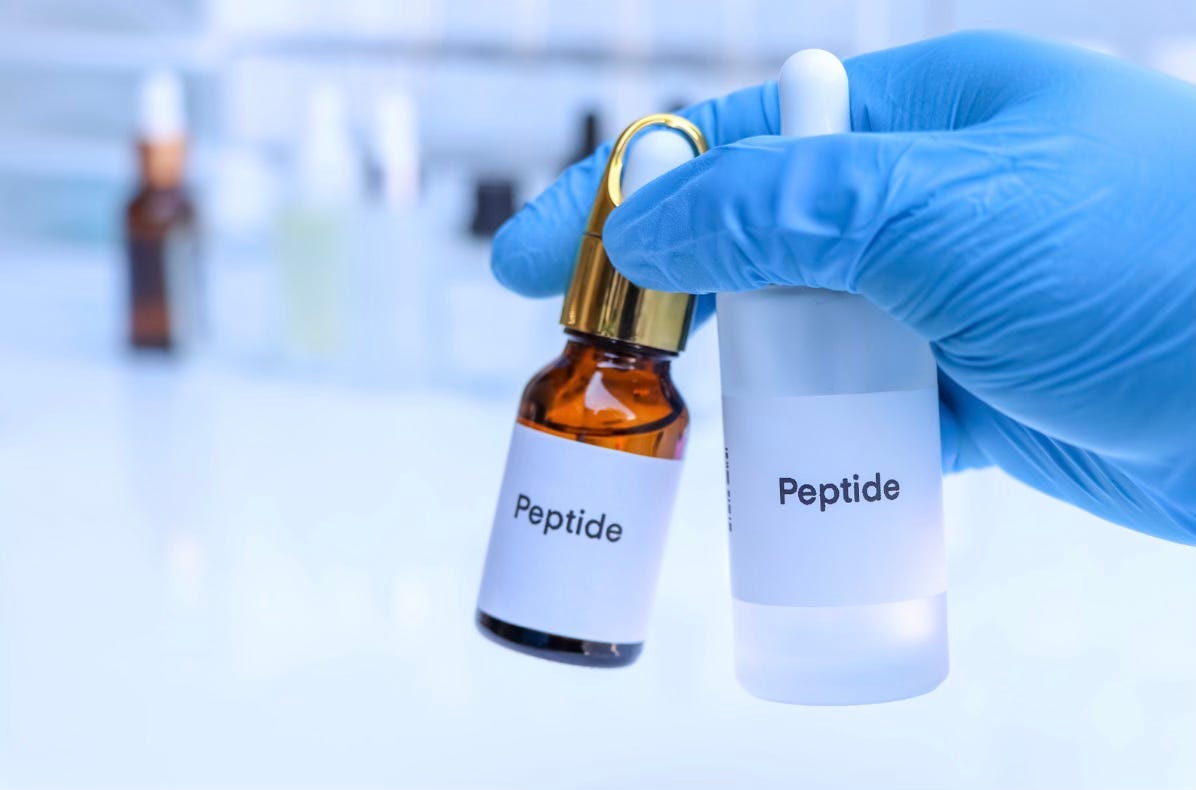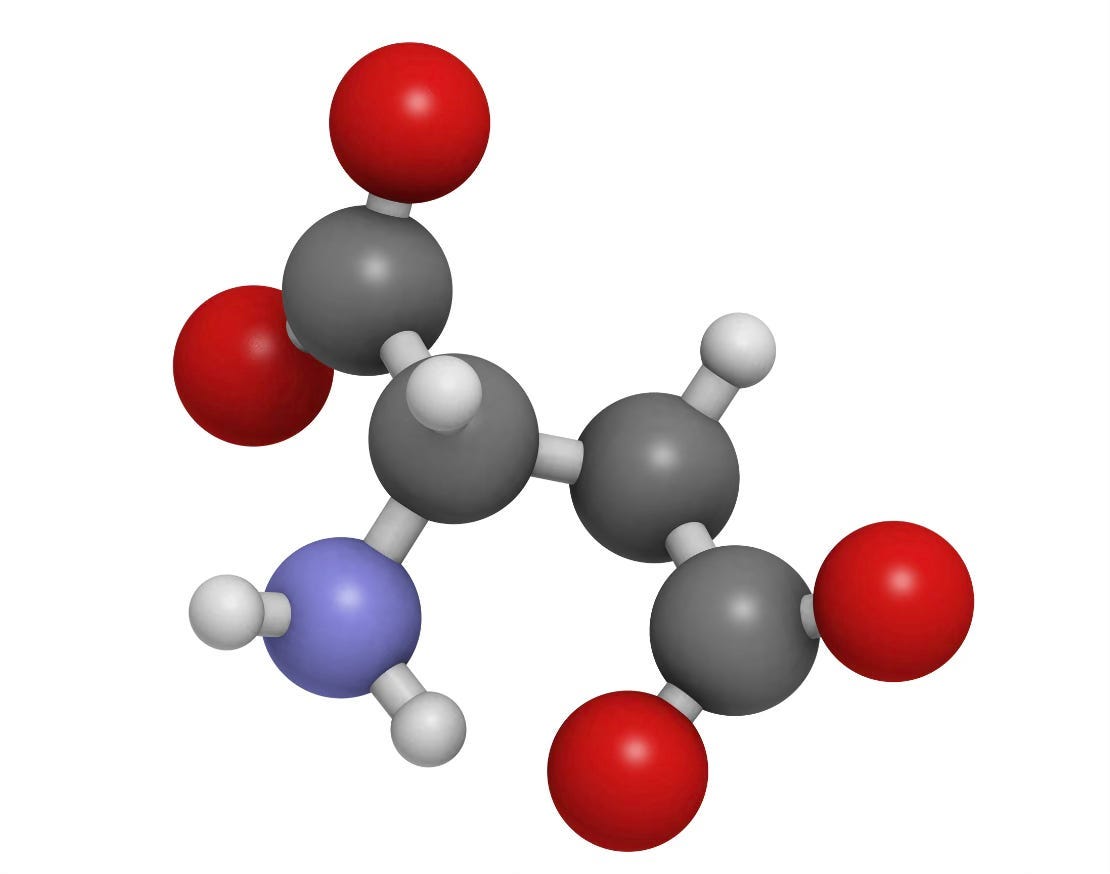{FREE} Peptides: What are they, and why are they being talked about as a miracle?
Peptides in medicine are not new, as the first peptide to be approved for medical use was insulin! And frankly, they can totally change your life!
What are peptides?
Peptides are short chains of amino acids, which are the building blocks of proteins.
Unlike proteins, which can contain hundreds of amino acids, peptides generally contain between 2 and 50.
Their simple structure allows these molecules to play various and specific roles in the body, ranging from cellular communication to hormone regulation.
Do we produce them ourselves?
Yes, our bodies naturally produce peptides.
They are essential for the proper functioning of many biological processes, such as cellular signaling, tissue repair, and metabolism regulation.
However, thanks to scientific advancements, it is also possible to synthesize peptides in the lab.
These synthetic peptides can be designed to mimic or enhance the functions of natural peptides and are often used in medical treatments or cosmetic products.
Be cautious about where you source your peptides! Many websites sell low-quality peptides, often "made in China," or even worse, they sell reconstituted peptides, which is a big no-no.
Reconstituted peptides degrade during shipping and handling, making them less effective or even harmful. Always choose reputable sources to ensure you're getting high-quality, safe peptides that haven't been compromised.
Why are they said to be miraculous?
Peptides are often described as "miraculous" (and I agree, based on how they healed me) because of their ability to interact specifically and precisely with different parts of the body.
International sports stars (M’Bappé, Curry, and the likes) are known to use them either in the off-season if these peptides are considered doping, or during the season to heal their injuries.
Haven't you ever wondered, “How do they manage to return to top form after a fracture that would have immobilized me for four months?” Well here I your answer (well, part of it).
Some peptides can stimulate collagen production in the skin, thereby reducing wrinkles and improving skin texture.
I will dedicate several posts to this in the coming weeks.
Others can increase muscle mass, promote fat loss, or improve injury healing.
Their precise and targeted action makes peptides powerful tools in both medical and aesthetic fields.
10 peptides already used in standard medicine
Insulin: This peptide regulates blood sugar and is crucial for the treatment of diabetes. Insulin is one of the most well-known and widely used peptides in medicine.
Glucagon: Used to treat hypoglycemia, this peptide increases blood sugar levels by stimulating the release of glucose from the liver.
Oxytocin: Known as the love hormone, oxytocin is used to induce labor during childbirth and to promote breastfeeding.
Vasopressin: This peptide helps regulate water balance and blood pressure by controlling water retention in the kidneys.
HCG (Human Chorionic Gonadotropin): Used in fertility treatment, this peptide stimulates the production of certain hormones necessary for reproduction.
Somatostatin: This peptide inhibits the secretion of several hormones and is used to treat certain hormone-related tumors and gastrointestinal disorders.
GHRH (Growth Hormone-Releasing Hormone): This peptide stimulates the production of growth hormone, essential for tissue development and regeneration.
BPC-157: Known for its tissue-healing properties, this peptide is used to accelerate the repair of muscles, tendons, and ligaments. My go-to peptide, which I inject very regularly. I will dedicate a full post to it.
Thymosin alpha-1: Used to strengthen the immune system, this peptide is particularly useful in treating chronic infections and certain immune conditions. Used by many biohackers in “protection” mode, especially in winter.
Corticotropin-Releasing Hormone (CRH): This peptide regulates the stress response by stimulating cortisol secretion from the adrenal glands.
Peptides, often celebrated as a "miracle" in biohacking, are short chains of amino acids that play vital roles in communication between cells, tissue repair, and hormone production. Recently, they've gained attention for their potential in anti-aging, muscle growth, fat loss, and faster recovery.
And did you know that Ozempic, a popular type 2 diabetes medication, is actually a peptide? It’s called semaglutide and has been used by biohackers since the early days of the field, showcasing its powerful effects in weight management.
In upcoming posts, we will explore each peptide in detail and how each can help in our fight against aging.
Peptides are generating increasing interest due to their versatility and effectiveness in various fields of medicine and wellness.
For example, in cosmetics, peptides (mainly GHK-Cu) are often used in anti-aging creams for their ability to stimulate collagen production, reduce wrinkles, and improve skin elasticity. There are super effective creams and others that are more in the realm of scams, even if backed by a big brand. Actually, if it’s a big brand, stay away. They usually put so little of the peptides that you won’t feel the difference. But more about this in a dedicated post.
Some peptides are even considered to be the fountain of youth... but more on this topic (and thus on Vladimir Putin, an avid user of peptides) in future posts.
Personally, I regularly use 4 peptides and plan to add a few more to my repertoire!
Valérie Orsoni
Your Coach, Biohacker, and Longevity Expert
P.S.: I'm also the founder of LiliWarrior, a 100% eco-friendly clothing brand that's better for the planet, and therefore better for our health (creating a virtuous cycle!).



